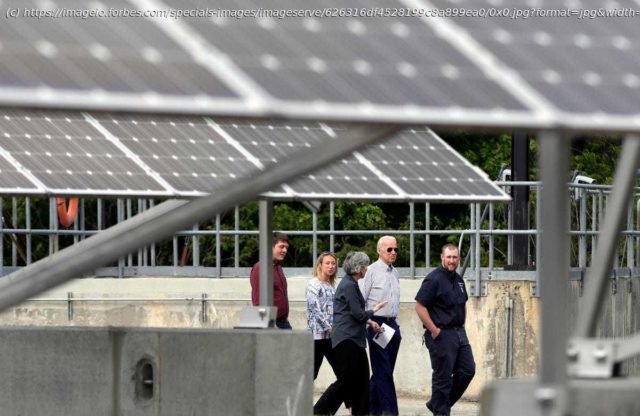A new investigation into solar in southeast Asia sends solar stocks lower. Some are approaching bear market territory.
They’re baa-aack. The Commerce Department is back to investigating U.S. solar imports from southeast Asia, most of them from Chinese multinationals, after abandoning a similar investigation late last year. Solar stocks are taking it on the chin. Over the last five days alone, NextEra (NEE) – a Florida-based solar importer and power producer — lost $10 a share. First Solar FSLR, an Ohio-based manufacturer with its own facilities in southeast Asia, has lost about $6 a share. Over the last five days ending on Friday, NextEra stocks have fallen by 11.2%, underperforming the Invesco Solar (TAN) exchange traded fund, and First Solar, which is down just 7%, likely due to the fact that the market assumes they would be less impacted by tariffs. About a month ago, California based solar manufacturer Auxin Solar asked Commerce to re-open its investigation into southeast Asian manufacturers of solar cells and solar modules. Auxin says that Chinese multinationals are circumventing existing tariffs and anti-dumping duties imposed on them by setting up shop in Vietnam, Cambodia, Malaysia and Thailand. All of those countries accounted for over 80% of solar panel imports into the U.S. last year. None of these countries had major solar factories until tariffs were imposed on China in an effort to build up the U.S. solar industry. The petition to add anti-dumping and countervailing duties to southeast Asian suppliers, which would likely impact non-Chinese companies there as well, includes five complaints Commerce will investigate in the weeks ahead. A preliminary decision is not expected until August. During an earnings call on Thursday, NextEra’s chief financial officer Kirk Crews said that companies in southeast Asia were withholding shipments of solar cells and modules. “A number of suppliers are not expected to ship panels to the U.S. until the Commerce Department makes a preliminary determination,” Crews said on the call. “We expect some of our solar projects will be impacted by this delay. Based on what we know today, we believe that approximately 2.1 to 2.8 gigawatts of our 2022 expected solar and storage build may shift to 2023,” he said. The shipment delays seem as though companies in the region are holding U.S. solar hostage in hopes to get importers to pressure Washington away from tariffs. Commerce has rejected anti-dumping and countervailing tariffs on southeast Asian suppliers four times already, and the industry – ripe with doom and gloom commentary from the Solar Energy Industries Association (SEIA) in Washington this month – suspects Commerce will keep the status quo.






